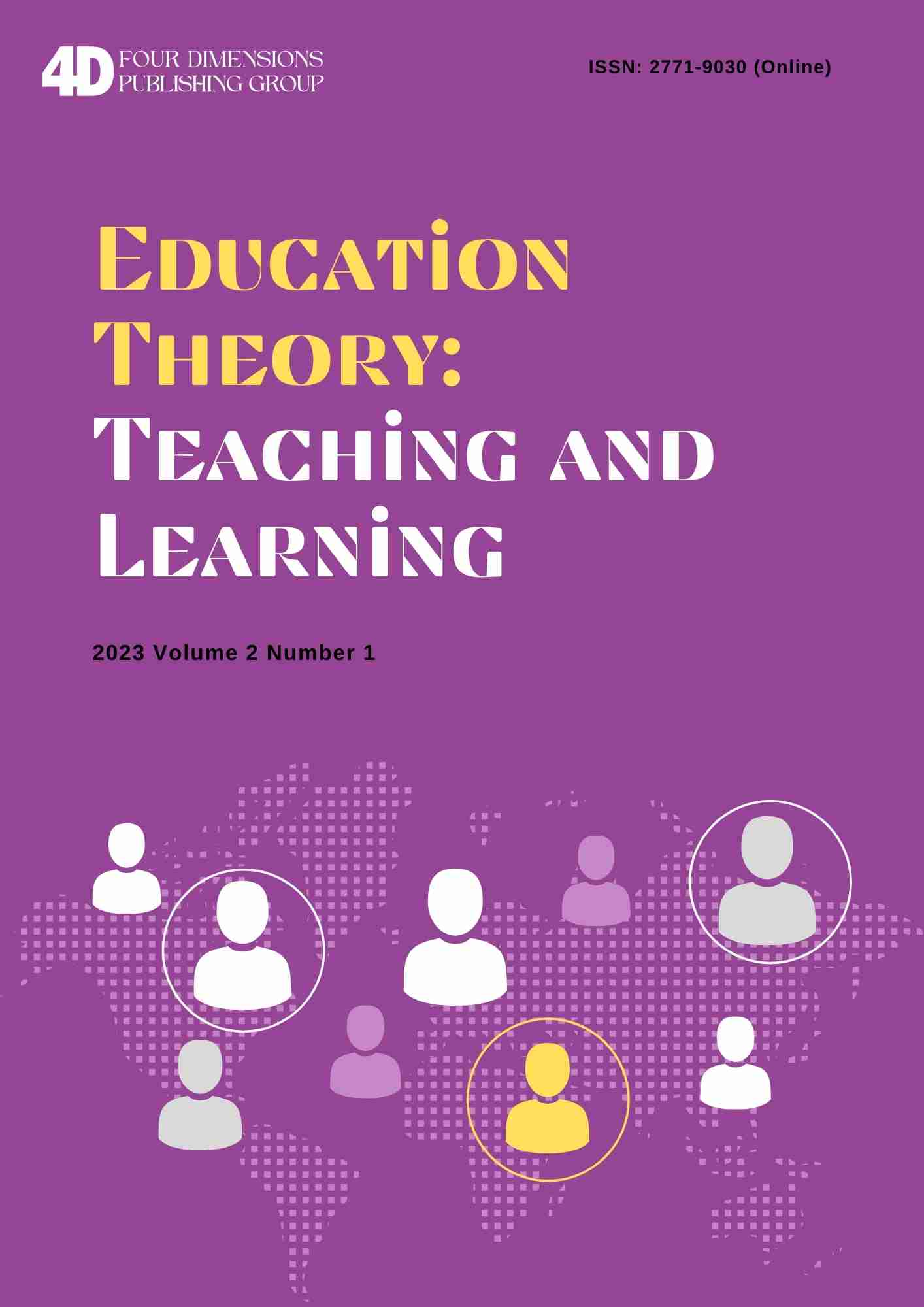
Education Theory: Teaching and LearningOpen Access
Education Theory: Teaching and Learning (ETTL) is an international, peer-reviewed journal dedicated to publishing original, high-quality research across all areas related to education theory, teaching, and learning. The journal provides open-access content for a global readership, aiming to foster scientific research and academic exchange among scholars. ETTL focuses on advancing the development of educational theory and practice, highlighting innovative research from around the world, and promoting international collaboration and knowledge sharing.
ISSN: N/A (Print)
Frequency: Quarterly
ISSN: 2771-9030 (Online)
Website: https://doi.org/10.55571/ettl
Email: journal@4dpublishinggroup.com
Indexing and Abstracting: Google Scholar; CrossRef; ResearchBib; WorldCat; CiteFactor
Email: journal@4dpublishinggroup.com
Indexing and Abstracting: Google Scholar; CrossRef; ResearchBib; WorldCat; CiteFactor
